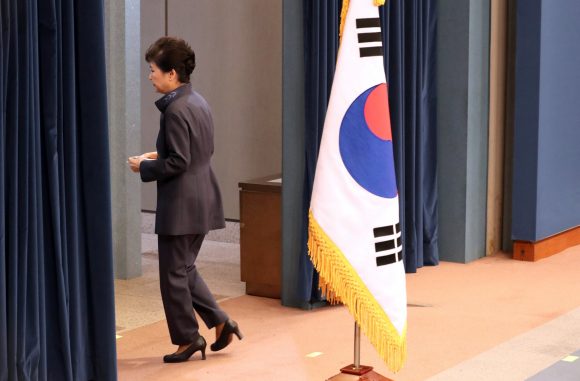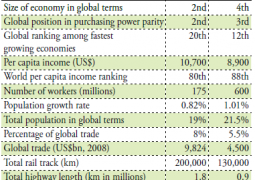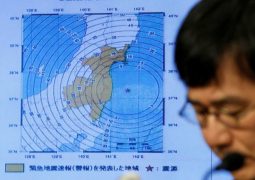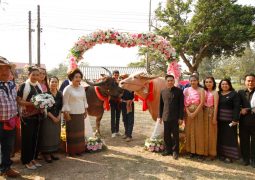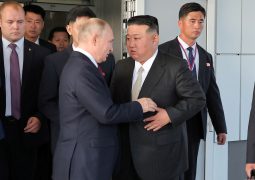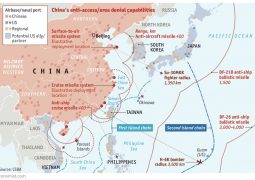South Korean ‘new broom’ mired in own clump of corruption
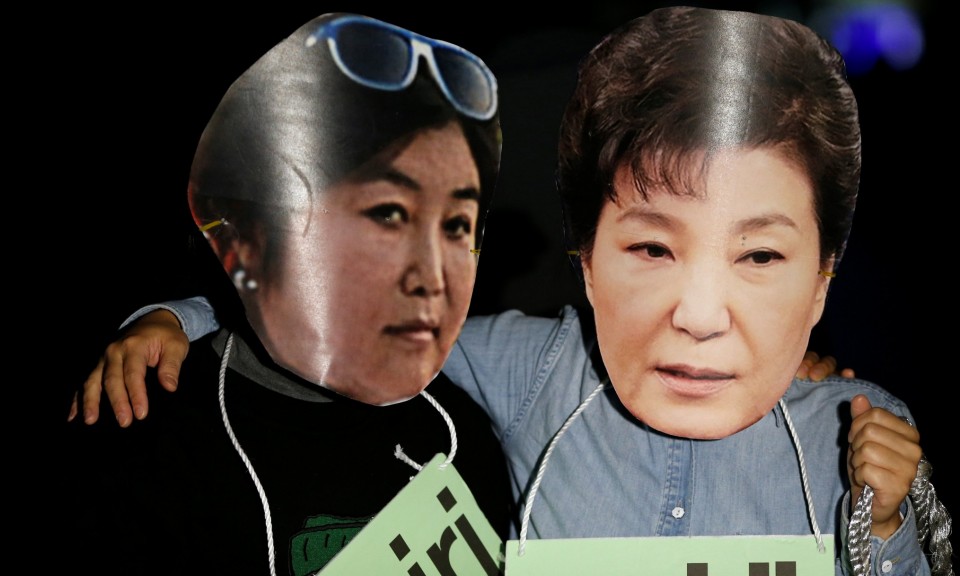
In South Korea’s short history, no president — except for the incumbent Park Geun-hye’s own father, the assassinated dictator Park Chung-hee — has managed to escaped the snares of corruption or embezzlement. Two were pardoned from long prison sentences, the sons and a brother of three others landed behind bars and one committed suicide during a corruption investigation against his family.
At the outset of her term in late 2012, Park vowed not to repeat their mistakes. She has cracked down on collusion between government and big business, from the Tongyeong salvage ship scandal to regulators turning the other way as shipping companies cut corners, which led to the Sewol ferry tragedy in 2014 that killed more than 300 people —mostly schoolchildren.
“Now as never before, we must identify the roots of irregularities and bring to light the clumps of corruption that are wrapped up in those roots,” Park said last year, marking the passage of a sweeping anticorruption bill that recently went into effect. “Stern measures need to be taken in regard to the chronic corruption that has built up in all areas of society.”
As she has become the center of a vast scandal that local media, politicians and the public now believe will be her ultimate undoing, she is finally getting her wish.
The new Improper Solicitation and Graft Act, dubbed the Kim Young-ran Act, went into effect in late September. It is intended to clean out corruption in every corner of the public domain. Banning civil servants, journalists and private educators from giving and receiving even small gifts or meals, the law affects four million Koreans. Its first suspect on trial was a small-town man who gave US$40 worth of rice cakes as thanks to a police officer who had helped him.
In light of the accusations leading back to Park herself, these anticorruption efforts appear pretty superficial. Weeks of rumors swirling around a woman named Choi Soon-sil — who has been near and dear to Park for 40 years — have ultimately snowballed into a crisis that has paralyzed the government and threatens the president’s final year in office.
Choi Soon-sil-gate
“Choi Soon-sil-gate” began when students and faculty at a local university protested against allegedly favorable treatment toward Choi’s daughter, the Olympic aspirant Chung Yoo-ra. Chung was the first and only student to be accepted and enrolled there with an equestrian scholarship; her grades, her peers argue, had been inflated. Then came media claims that Choi might have used her connections with Park to push companies, in January, to make 80 billion won (US$72 million) in contributions to two nonprofit foundations orchestrated by the government.
Choi is the daughter of Park’s late former mentor, Choi Tae-min, the ex-wife of Park’s former chief of staff Chung Yoon-hoi and a close friend dating back to when the young Park’s parents were assassinated. Choi served as a consultant for dozens of Park’s speeches and Park is alleged to have shared national security documents with her: more than 200 confidential files were found by a local media outlet on Choi’s discarded tablet computer (which was allegedly registered under the name of a presidential staff member’s name, to boot). Concern has been stirred that Choi was exerting undue influence from outside the Blue House, earning her the nickname “president of the night” or “shadow president.”
While Choi has largely been out of the public eye as the scandal has unfolded, she recently came out of the woodwork in Germany with her daughter to defend Park’s genuine intentions and dedication to her country, admitting to no more than editing some speeches to help the president convey her message. The public lacks the same empathy, and was appalled by Park’s brief apology on Tuesday that largely sidestepped the accusations about Choi’s influence and access to confidential material. Park’s approval rating reached a record-low 17.5% this week, and is expected to dip further as the scandal unfolds.
Suspicion falls on other members of Park’s government, too. Presidential secretary Jeong Ho-seong is alleged to have regularly delivered 30cm-thick “presidential reports” to Choi. The presidential office is accused of expediting the creation of the aforementioned foundations, with the Federation of Korean Industries acting as a puppet and senior secretary Ahn Jong-beom playing the mastermind. Doubt is also cast on the Ministry of Culture, Sports and Tourism, which approved the setting up of the two nonprofits in question within a day — a process that normally takes weeks. An office of the government’s creative economy task force was included among places raided by investigators Thursday.
Critics feared that the Kim Young-ran Act would focus too much on pettier crimes than big-fish graft. But a fish rots from the head. Even Park’s own party is pressing her to defect, while the liberal opposition and hard line conservative citizens have called for her impeachment and a complete revamp of the Cabinet.
“This is not some ordinary lame-duck situation. She doesn’t really have any power or legitimacy,” said Kim Jae-chun, a political scientist at Sogang University in Seoul.
Park’s term expires in February 2018. While an impeachment and across-the-board reappointments would be difficult, Kim suggests that her best solution is to come clean about the scandal, step out of domestic politics to focus on defense and the economy, and pull in a new prime minister who is agreeable to the opposition.
“I think that’s the only way. I think there is no way for her to recover. Then she can minimize the damage, but she is already done.”
- Previous Japan, India to sign nuclear cooperation pact in mid-November
- Next South Korea country profile


